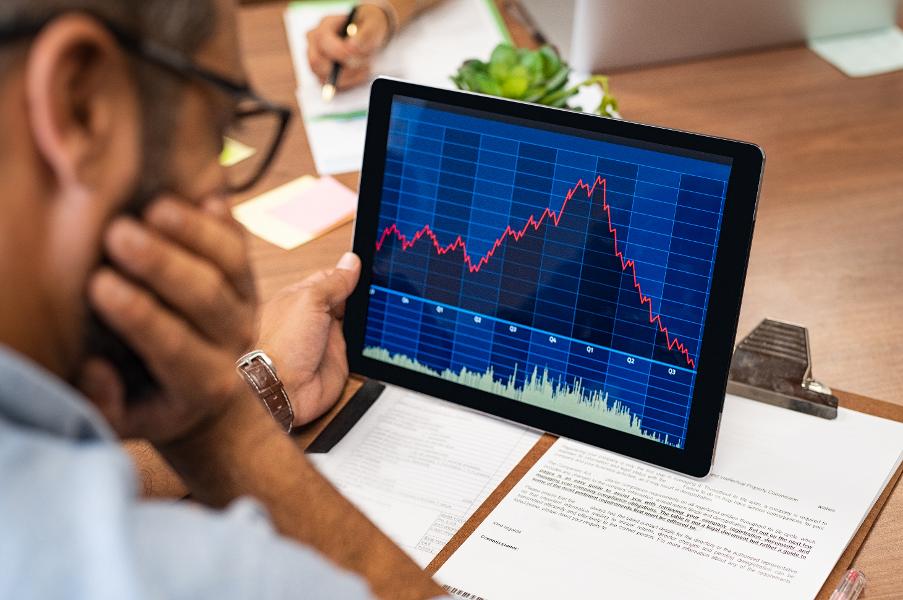
Erik Carter
April 3, 2020
These last few weeks have been terrifying for almost anyone with money in the stock market. You may be tempted to reduce the amount you have in stocks or even get out altogether, but this could be a big mistake. Ask yourself this: when do you need the money and do you think the stock market will be higher or lower at that time than it is now? If you need the money in the next 5 years, no one has any idea where the stock market will be and you shouldn’t have that money invested at all. (If you’re retiring in the next few years, it’s unlikely you’ll need ALL of that money in the next few years, but you’ll want to keep enough in cash to cover how much you’ll need to withdraw over that time period.)
For longer-term money, getting out could turn a temporary loss into a permanent one if you miss the recovery. A report by CircleBlack found that someone who had invested $1k in the S&P 500 just before previous market crashes and continued investing $1k every year made their money back in 2 years after The Great Recession, 5 years after the pop of the Dotcom Bubble, 3 years after the 1970 recession, and 7 years after the Great Depression. In this case, anything from the passage of a stimulus plan to news of promising developments in drugs or vaccines could cause the market to soar unexpectedly. (If the situation only continues to get worse over the long run, we’ll all have much bigger problems than our portfolios.) It’s virtually impossible to time these things in advance and if you get back in afterward, it will be too late.

As the public health officials have been telling us, don’t touch your face after touching anything that might have the COVID-19 virus. In the same way, be careful about touching your portfolio. Here are some steps you can take instead:
1) Make sure your portfolio is properly diversified. This is something you should do regardless of what the market is doing. If you’re too conservative, being more aggressive will allow you to benefit more when the market comes back. If you’re too aggressive, being more conservative will reduce your losses if the market continues to fall.
The easiest way to diversify is with an asset allocation fund like a balanced or target-date fund. These are designed to be a one-stop-shop so you only need one.
2) Re-balance. Even if your portfolio was originally properly diversified, the recent declines in the market have likely caused it to be out of balance. For example, if you started with 60% in equities and 40% in cash and fixed income, you may now have only 50% in equities. This makes your portfolio more conservative than you originally intended.
To re-balance, you would move enough money out of the cash and fixed income and into the equities to bring yourself back to the 60% target level. By doing so, you’re buying more equities as they decline in price, and the lower they go, the more you’ll buy. When the market eventually recovers and you find yourself with more than 60% in equities, re-balancing will cause you to “pocket” some of those winnings by selling enough equities and moving the money into cash and fixed income to bring yourself back to that 60% target.
Fortunately, you don’t have to look at it every day to re-balance. You can do it just once a year and some retirement plans allow you to have your portfolio re-balanced periodically. Any money in an asset allocation fund will be re-balanced automatically within the fund.
3) Convert to Roth. If you were thinking of converting any of your retirement accounts into a Roth, now might be a good time. That’s because you’ll need to pay taxes on any earnings and pre-tax balances, and lower market values could mean less of each. When the market recovers, your money can then grow to be tax-free after 5 years and age 59 1/2.
4) Harvest tax losses . If you have investments that have lost value in a taxable account, you can sell them and use the losses to offset other taxes. To the extent that your losses exceed any gains, you can use those excess losses to reduce your ordinary income taxes by $3k a year (anything over $3k can be carried forward to future years up to $3k per year).
The only trick is that you can’t repurchase the same or an identical investment 30 days before or after you sell. If you want to reinvest the money to benefit from a turnaround in the market, just invest in a similar investment. After the 30 days, you can then reinvest back into the original investment if you prefer.
5) Talk to an unbiased and qualified financial professional. Still unsure of what to do? Just like it can make sense to seek medical advice if you start feeling sick, a good financial advisor or planner can help you make the right decision when your portfolio doesn’t seem well.
This article was written by Erik Carter from Forbes and was legally licensed by AdvisorStream through the NewsCred publisher network.
© 2025 Forbes Media LLC. All Rights Reserved
This Forbes article was legally licensed through AdvisorStream.


